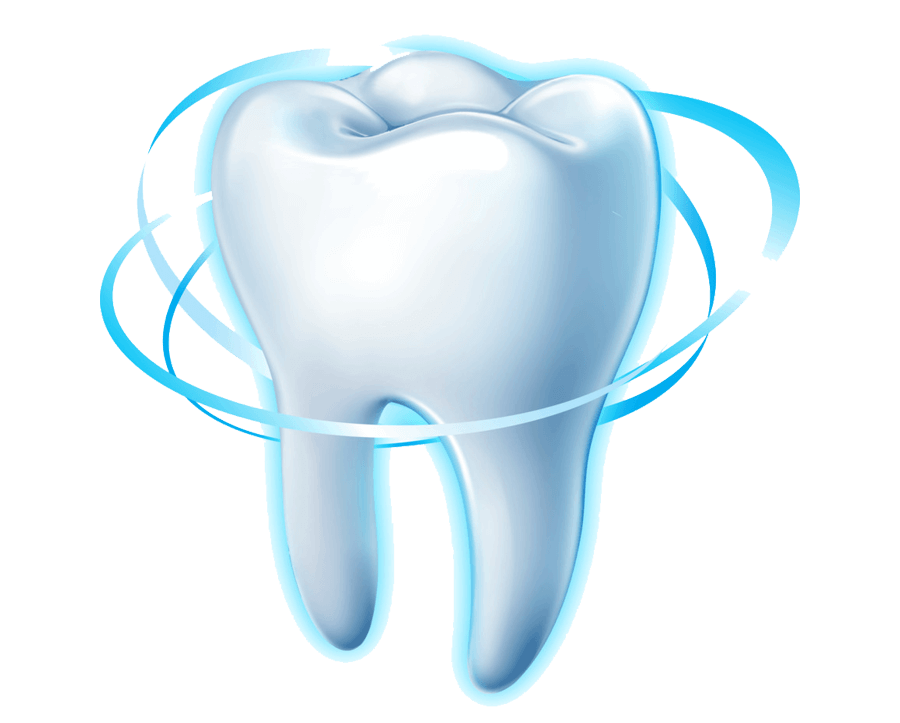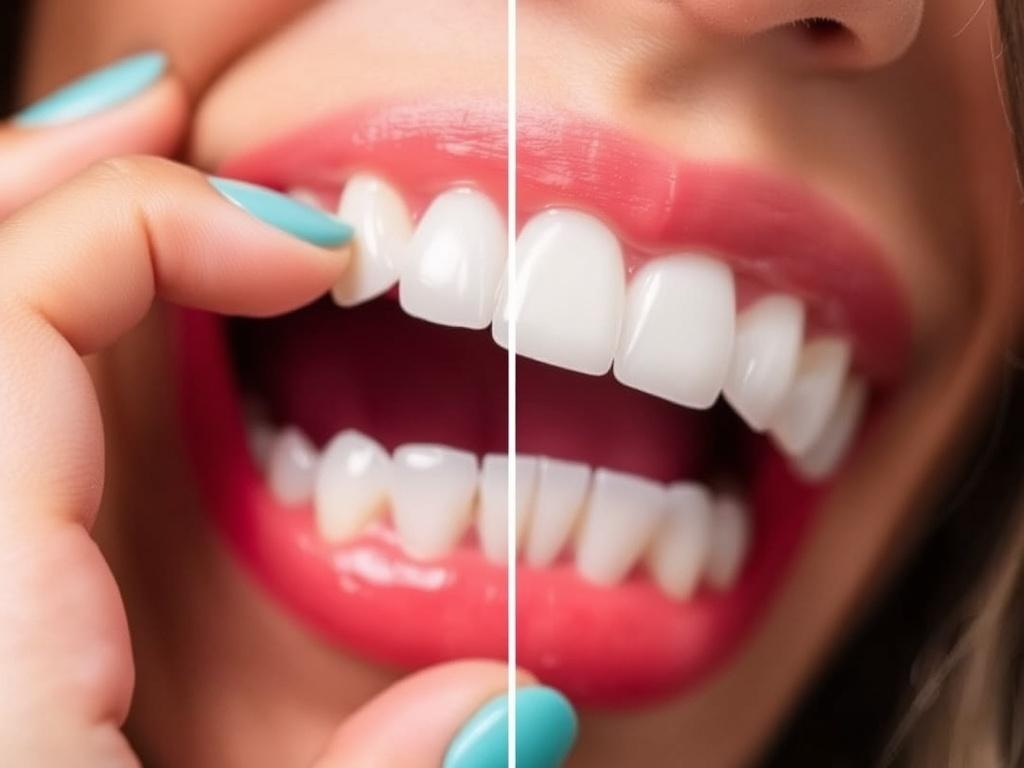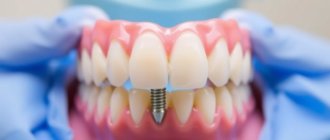Dental crowns play a vital role in restorative dentistry, helping to strengthen damaged teeth while restoring their appearance. But as time goes by, many people begin to wonder, «Can you whiten dental crowns?» If you’ve ever asked yourself this question, you’re not alone. The appeal of a bright, white smile is universal, and while natural teeth can often be brightened, dental crowns pose a unique challenge. In this article, we’ll explore the nature of dental crowns, why they differ from natural teeth in terms of whitening, and discuss the best ways to maintain or improve their appearance.
Содержание
- 1 Understanding Dental Crowns and Their Composition
- 2 Why You Can’t Whiten Dental Crowns Like Natural Teeth
- 3 Maintaining the Color of Dental Crowns
- 4 Options for Changing the Color of Crowns
- 5 Comparing Whitening for Natural Teeth vs. Dental Crowns
- 6 Common Myths About Whitening Dental Crowns
- 7 When to Consult Your Dentist About Whitening Crowns
- 8 How to Prepare for Teeth Whitening if You Have Crowns
- 9 Summary Table: Whitening Dental Crowns – Key Takeaways
- 10 Fun Facts About Dental Crowns and Whitening
- 11 Emerging Technologies: Will Whitening Crowns Be Possible in the Future?
Understanding Dental Crowns and Their Composition
To answer the question, «can you whiten dental crowns?» it’s important to first understand what dental crowns actually are and how they’re made. A dental crown is essentially a tooth-shaped cap that is placed over a damaged or decayed tooth to restore its shape, size, strength, and appearance. Crowns can be made from a variety of materials, including:
- Porcelain or ceramic
- Porcelain fused to metal
- Gold alloys
- Base metal alloys
- Zirconia
Each material has different properties concerning durability, aesthetics, and resistance to staining. Porcelain and ceramic crowns are prized for their tooth-like appearance, whereas metal crowns are more durable but less natural-looking.
How Crowns Differ from Natural Teeth
Natural teeth are made primarily of enamel, a porous and semi-translucent material that can absorb stains over time. This is why professional whitening treatments or at-home whitening kits can effectively brighten teeth by bleaching the enamel and breaking down stain molecules.
Dental crowns, however, are made of non-porous materials that do not respond to bleaching agents in the same way. Porcelain or ceramic crowns have a hard outer surface that resists staining, but they also do not lighten or bleach when exposed to whitening products. This fundamental difference is the reason why the question of whitening dental crowns can be complicated.
Why You Can’t Whiten Dental Crowns Like Natural Teeth
The main reason you can’t whiten dental crowns with traditional teeth whitening methods is because of the chemical composition of the materials. Whitening products like hydrogen peroxide or carbamide peroxide work by penetrating the enamel to break down stains internally. Crowns, being non-organic and non-porous, do not absorb these bleaching agents.
Here are several key points explaining the limitations:
| Factor | Natural Teeth | Dental Crowns |
|---|---|---|
| Material Composition | Enamel (porous and organic) | Porcelain, ceramic, metal (inorganic and non-porous) |
| Response to Bleaching | Can lighten color through oxidation process | No change in shade, bleaching agents ineffective |
| Surface Stains | Susceptible to staining but can be cleaned or bleached | Resistant to staining but can accumulate discoloration on surface |
| Lifespan of Whitening | May require periodic whitening | Color remains stable unless surface damage occurs |
What Happens If You Try to Whiten Crowns?
If you apply teeth whitening products to crowns, there will be little to no noticeable color change in the crowns themselves, but your natural teeth may whiten. This uneven whitening can lead to mismatched shades, where your crowns look darker in comparison to your brighter natural teeth. This realization often causes frustration.
Many patients learn the hard way that whitening treatments target enamel specifically. If you want to brighten your smile but have a crown that is now darker relative to your natural teeth, there are alternative approaches to consider.
Maintaining the Color of Dental Crowns
While you can’t whiten dental crowns in the traditional sense, you can prevent discoloration and maintain their appearance over time. Here are practical tips for keeping your crowns looking good:
- Practice good oral hygiene: Regular brushing and flossing help remove plaque and surface stains.
- Professional cleanings: Routine dental cleanings can polish away surface staining on crowns.
- Avoid staining agents: Limit consumption of coffee, tea, red wine, and tobacco, all of which can stain the margins where crown meets tooth.
- Use non-abrasive toothpaste: Abrasive products can dull the surface of crowns over time.
Polishing: The First Line of Defense Against Discoloration
Professional polishing is your dentist’s weapon against discoloration on crowns. Polishing removes surface stains and helps restore the crown’s original shine. If you notice your crown looking dull, a visit to the dentist for cleaning and polishing is often sufficient to revive its appearance.
Options for Changing the Color of Crowns
So if whitening isn’t an option, what can you do if your dental crown has become discolored?
Here are some effective options:
1. Crown Replacement
Replacing the crown is the most definitive way to change its color. If your crown no longer matches your natural teeth due to discoloration or changes in shade, your dentist can fabricate a new crown that matches your current tooth color more closely.
This approach, while more costly and time-consuming, ensures a perfect match and long-lasting results.
2. Veneers or Composite Bonding
In some cases, veneers or composite bonding can be applied to adjacent teeth or even the crown surface to improve uniformity. While not a direct whitening solution, these cosmetic procedures can enhance your smile’s overall appearance.
3. Professional Surface Treatments
Some dentists offer specialized surface treatments that can improve the shine and reduce staining on crowns. These treatments, however, do not bleach the crown but can maintain or restore gloss and brightness.
Comparing Whitening for Natural Teeth vs. Dental Crowns
To better understand why whitening dental crowns is challenging, it helps to see a side-by-side comparison of whitening treatment results.
| Treatment | Effect on Natural Teeth | Effect on Dental Crowns |
|---|---|---|
| At-Home Whitening Kits | Effective; lighten enamel safely over weeks | No effect; crowns remain same color |
| In-Office Whitening Treatments | Immediate lightening post-session | No color change; possible mismatch with whiter teeth |
| Whitening Toothpaste | Removes surface stains, maintains brightness | May clean surface stains, no color alteration |
| Dental Polishing | Removes stains, brightens surface | Removes surface discoloration, improves shine |
Common Myths About Whitening Dental Crowns
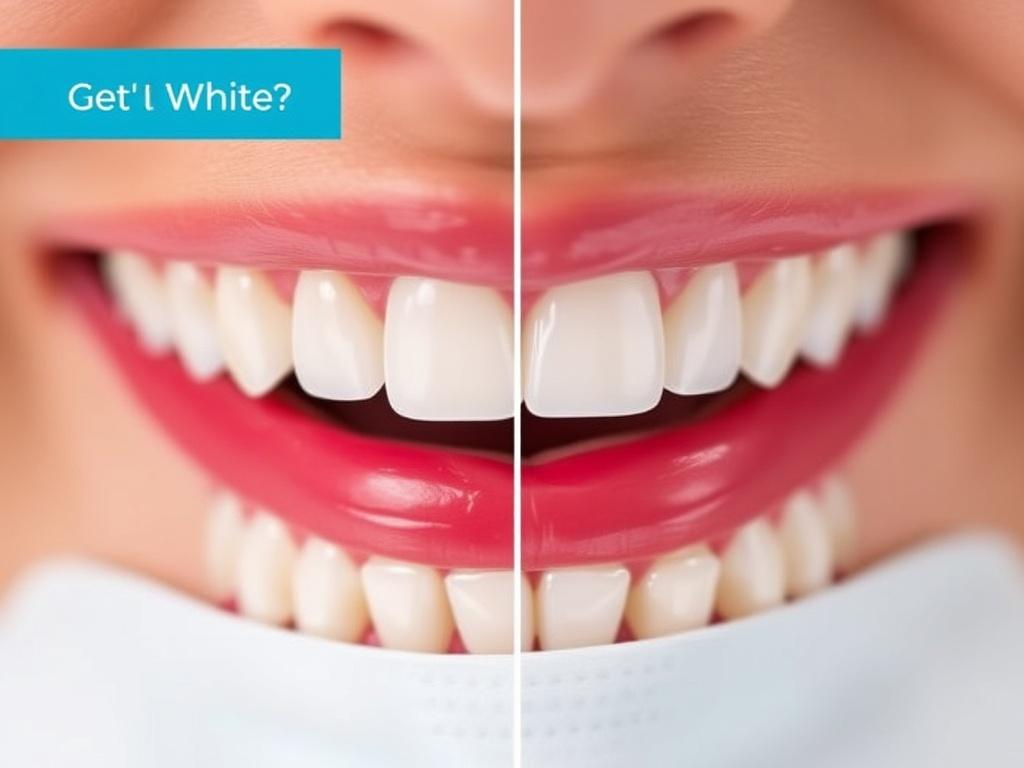
There are many misconceptions floating around when it comes to whitening dental restorations. Let’s clarify some of the most common myths:
- Myth: Crowns can be whitened with the same treatments as teeth.
Fact: Crowns do not respond to bleaching agents due to their material composition. - Myth: Whitening crowns at home is inexpensive and effective.
Fact: At-home whitening products are ineffective on crowns and may cause uneven tooth color. - Myth: You can polish away yellowing on crowns yourself.
Fact: Polishing should be done professionally to avoid damage. - Myth: Crowns always stay perfectly white forever.
Fact: Crowns can discolor or become dull at margins but generally resist stains better than natural teeth.
When to Consult Your Dentist About Whitening Crowns
If you’re considering whitening your teeth and have crowns, it’s crucial to speak with your dentist first. A dental professional can assess:
- The current shade of your natural teeth and crowns
- The likelihood of uneven whitening results
- Whether replacing crowns or other cosmetic options are more appropriate
Your dentist will create a tailored treatment plan for a harmonious, bright smile without disappointment.
Questions to Ask Your Dentist
When you visit, keep these questions in mind:
- Will whitening treatments affect my crowns?
- What options do I have if my crowns don’t match my natural teeth?
- How often should I have professional cleaning or polishing for my crowns?
- Is crown replacement a viable option for me?
How to Prepare for Teeth Whitening if You Have Crowns
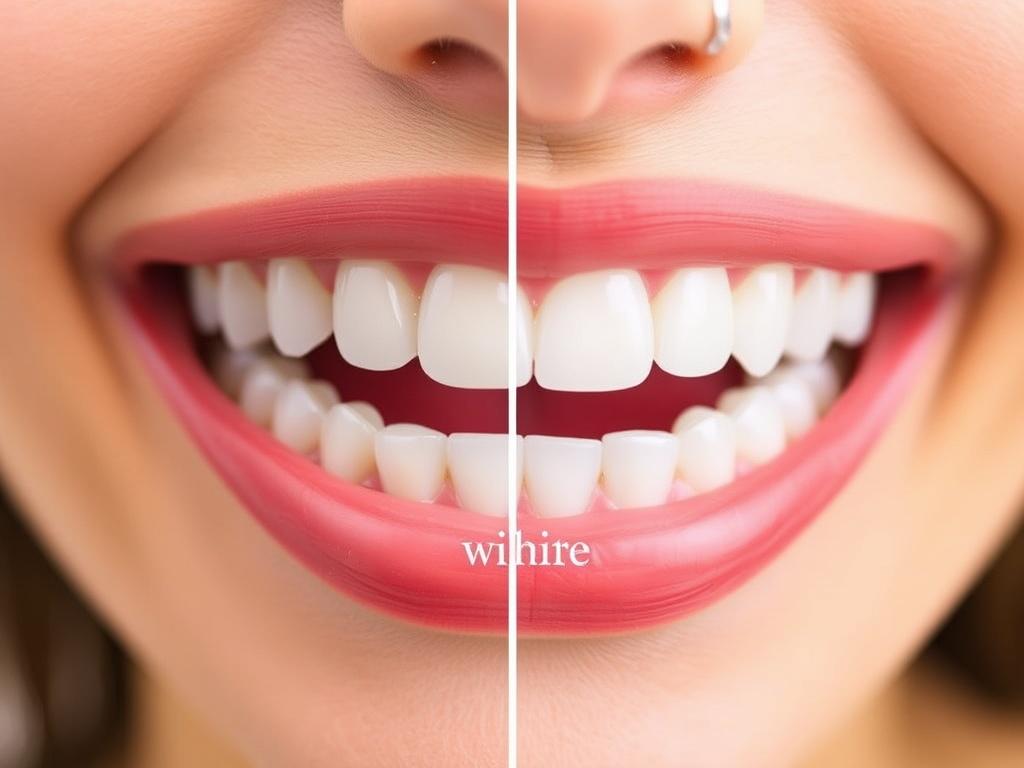
If you want to whiten your natural teeth but have dental crowns, here are some steps to optimize your experience:
- Get a dental exam to check the condition of your crowns and natural teeth.
- Have your teeth professionally cleaned to remove surface stains on crowns and teeth.
- Understand that crowns will not change color.
- Discuss with your dentist the possibility of crown replacement in the future if needed.
- Use whitening treatments carefully and under supervision.
Summary Table: Whitening Dental Crowns – Key Takeaways
| Topic | Details |
|---|---|
| Can dental crowns be whitened? | No, traditional whitening agents do not lighten crowns. |
| Why not? | Crowns are made of materials that do not respond to bleaching. |
| How to maintain crown color? | Regular cleaning, avoid staining foods, professional polishing. |
| What if color mismatch occurs? | Consider crown replacement or cosmetic adjustments. |
| Is whitening your natural teeth recommended with crowns? | Yes, but expect possible shade differences; consult your dentist. |
Fun Facts About Dental Crowns and Whitening
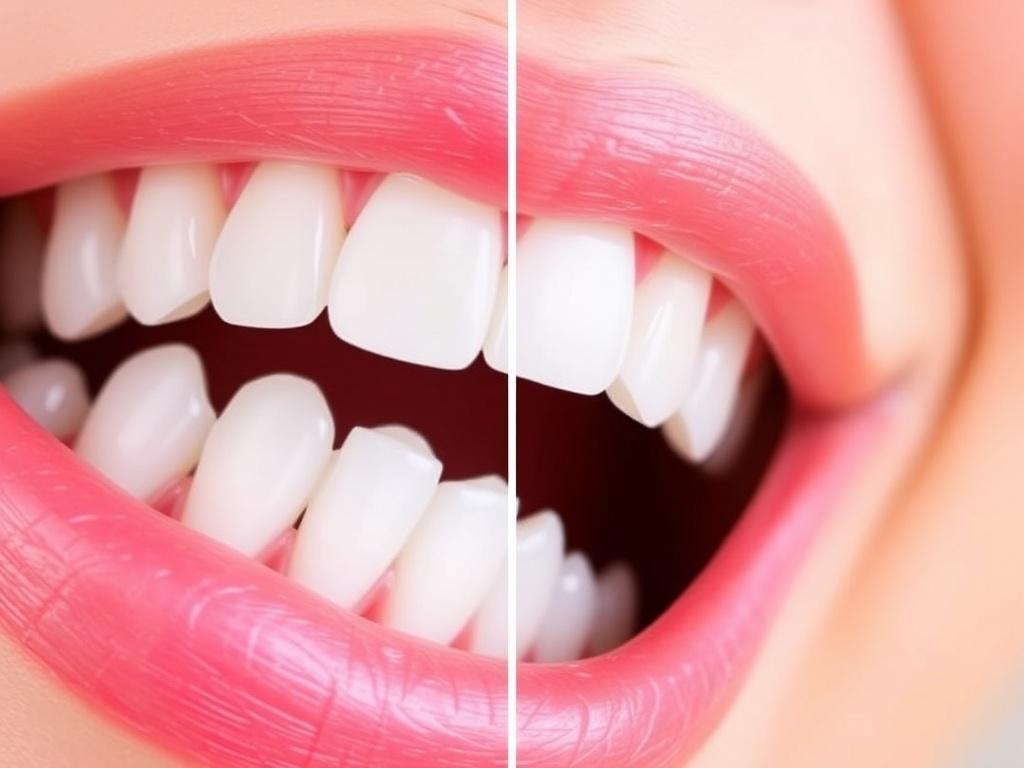
- Dental crowns can last 10-15 years or longer with good care.
- Porcelain crowns are often customized with multiple layers to mimic natural tooth translucency.
- Contrary to popular belief, metal crowns do not stain but are mostly chosen for back teeth due to visibility.
- Newer materials like zirconia offer both strength and better aesthetics, resisting staining better than older materials.
Emerging Technologies: Will Whitening Crowns Be Possible in the Future?
Dental materials continue to evolve. Research is ongoing into:
- Developing crowns with more stain-resistant coatings
- Creating crowns that respond to bleaching agents
- New types of whitening treatments safe for restorations
While no current whitening products effectively whiten crowns, future technology might bridge this gap, allowing patients to brighten both their natural teeth and restorations simultaneously.
Conclusion
So, can you whiten dental crowns? The short answer is no—not with traditional whitening methods designed for natural teeth. Dental crowns are made from materials that don’t react to bleaching agents, so attempting to whiten them may result in an uneven, mismatched smile if your natural teeth become lighter. That said, maintaining the appearance of crowns through diligent oral hygiene, professional cleanings, and avoiding staining foods and habits can keep your restorations looking their best. If color discrepancies become bothersome, crown replacement or cosmetic treatments are viable solutions to consider with your dentist. Ultimately, a consultation with your dental professional will provide personalized guidance, helping you achieve a confident, radiant smile that harmonizes both your natural teeth and dental crowns.
